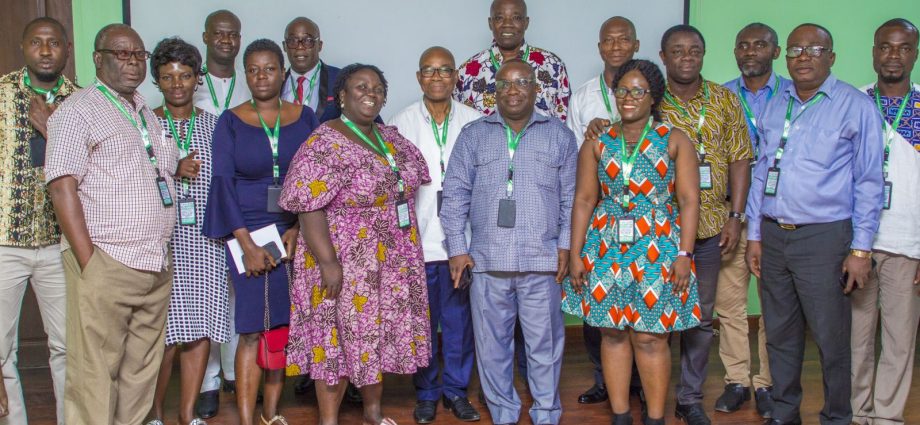TIDD HELD A VALIDATION WORKSHOP ON THE FEASIBILITY STUDY OF ESTABLISHING LEGAL WOOD DEPOTS THROUGH PUBLIC PRIVATE PARTNERSHIP APPROACH
A validation workshop was organized by the Timber Industry Development Division (TIDD) of the Forestry Commission of Ghana on the feasibility study of establishing legal wood depots through Public Private Partnership Approach. The stakeholders were drawn from industry players: Domestic Lumber Millers Association of Ghana (DoLMAG); Domestic Lumber Trade Association; TUC holders (GTMO and GTA); Nature and Development Foundation; Tropenbos International Ghana; and Kumasi Wood Cluster Association (KWC); representative of the EU-Ghana Delegation and representatives from the Forestry Commission. This is in support of the project being implemented by TIDD with support from FAO and its donor partners titled “Enhancing stakeholders’ interest in the Domestic Timber Trade Network (DoTTNet) process to meet the demand and supply of legal timber in the Domestic market in Ghana”.
In his opening remarks, the Executive Director of TIDD; Dr. Ben N. Donkor stated that, the success of Ghana’s FLEGT/VPA is largely pivoted on a well-structured and regulated domestic market which can also be a catalyst for development and growth in the timber industry of Ghana. In the light of this, the Forestry Commission through the Timber Industry Development Division has adopted the Domestic Timber Trade Network (DoTTNet) process which is part of interventions and initiatives to effectively regulate and promote trade in legal timber in the domestic market.
Dr. Donkor avers that, the DoTTNet process seeks to bring all players in the domestic market value chain, mainly TUC holders (loggers), small and medium scale millers, including DoLMAG and vendors such as the DoLTA on a common platform to promote trade in legal timber whiles ensuring traceability of timber and timber products.
According to the Executive Director, TIDD, effective implementation of this process would result in enhanced monitoring mechanisms under the Ghana Legality Assurance System (GhLAS).
Nonetheless, there are major constraints that need to be addressed urgently before full implementation of the DoTTNet process and its final roll-out for nationwide adoption.
These include; lack of legal timber in the domestic market, price disparity between legal timber and illegal timber, among others. This workshop would offer opportunity to deliberate on these issues and proffer suggestions in addressing them.
On part of the European Union’s representative, Mr. Christopher Ackon, he extended greetings from the Head of EU Delegation to Ghana who couldn’t attend the workshop because of equally important engagement in Kumasi. He underscored that; the concept of establishing legal wood depots is a very laudable idea that can’t be underestimated so far as FLEGT /VPA is concerned. Yet there were a lot of challenges that needs to be addressed. He hinted that European Union’s key priority areas include deforestation issues emanating from illegal logging activities of which establishing legal wood depots are premised. He assured the meeting of European Union’s total commitment towards the process.

